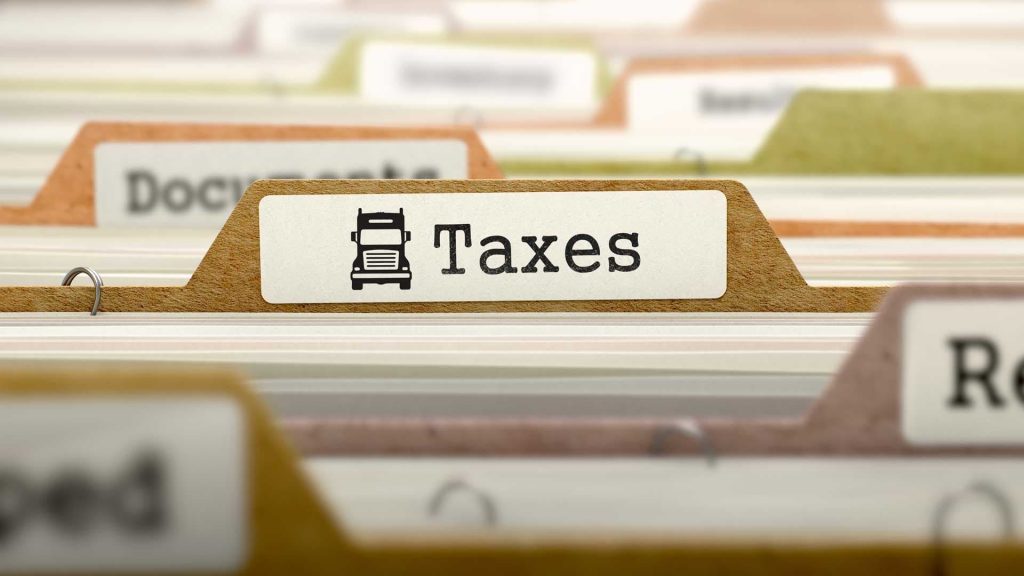
The Federal Excise Tax (FET) on trailers is a specific tax levied by the United States government on certain types of trailers and their components. This tax is part of a broader system of excise taxes that aim to generate revenue for federal programs, particularly those related to transportation infrastructure. The FET applies to various types of trailers, including those designed for commercial use, such as flatbeds, refrigerated trailers, and cargo trailers. The tax is typically calculated as a percentage of the sale price of the trailer, which can significantly affect the overall cost for consumers and businesses alike.
The current FET rate for most trailers is 12% of the sales price. However, this rate can vary depending on the type of trailer being purchased. For instance, certain specialized trailers may be subject to different rates or exemptions based on their intended use or design features. It is essential for buyers to understand how this tax impacts their purchase decisions, as it can add a considerable amount to the final price tag.
In addition to understanding the tax rate, potential buyers should also be aware of any exemptions that may apply. For example, trailers used exclusively for agricultural purposes might be exempt from FET under specific conditions. Moreover, certain sales transactions, such as those involving used trailers or sales between exempt organizations, may also qualify for exemptions from this tax.
For businesses involved in manufacturing or selling trailers, compliance with FET regulations is crucial. Manufacturers are responsible for collecting the tax at the point of sale and remitting it to the IRS. Failure to comply can result in penalties and interest charges, making it vital for businesses to maintain accurate records and stay informed about current tax laws.

Impact of FET Tax on Businesses
The FET tax can have a significant impact on businesses in the trailer industry. Businesses must consider the FET tax when developing their pricing strategies to remain competitive while ensuring profitability. Additionally, businesses must allocate resources for accurate record-keeping, reporting, and tax remittance to adhere to tax regulations, which can increase compliance costs. Proper management of FET tax obligations is also essential to maintain healthy cash flow and avoid penalties for late payments or non-compliance.
Impact of FET Tax on Consumers
Consumers purchasing trailers should be aware of the FET tax implications to make informed buying decisions. The tax can significantly affect the overall cost of the trailer. Consumers should understand how the FET tax is calculated to budget effectively. Consumers should also learn about potential exemptions to identify opportunities for tax savings.
Compliance and Penalties
Non-compliance with FET tax regulations can result in severe penalties, including fines, interest charges, and legal actions. Both businesses and consumers must ensure they adhere to all tax obligations related to trailer transactions. This includes timely filing of tax returns, accurate calculation of tax amounts, and proper documentation of exempt transactions.
Strategies for Managing FET Tax Obligations
Here are some strategies to manage FET tax obligations:
- Stay Informed: Stay updated on the latest tax regulations and rates for trailers in your jurisdiction.
- Accurate Record-Keeping: Keep detailed records of all trailer transactions, including sale prices, exemptions claimed, and tax payments.
- Consult Professionals: Work with tax advisors or accountants specializing in excise taxes to ensure compliance and optimize tax strategies.
- Utilize Tax Software: Implement reliable tax software solutions to streamline the calculation, reporting, and remittance processes.
- Plan Ahead: Include FET tax considerations in your financial planning to avoid unexpected tax liabilities and ensure smooth business operations.
Key Takeaways
Here are some key takeaways:
- FET Tax is Mandatory: The FET on trailers is a compulsory levy that applies to most trailer transactions.
- Variable Rates: The tax rate can vary based on the trailer’s type, size, and intended use.
- Exemptions Available: Certain trailers and buyers may qualify for exemptions, reducing the overall tax burden.
- Compliance is Crucial: Adhering to FET tax regulations is essential to avoid penalties and ensure legal compliance.
- Professional Guidance Recommended: Consulting with tax professionals can help navigate the complexities of FET tax obligations effectively.

FAQs
Who pays FET taxes?
Businesses pay the tax directly, but they can pass the cost onto consumers.
What is a federal excise tax?
It is a tax levied by the federal government on specific goods and services.
How is an excise tax different from a sales tax?
An excise tax is imposed on specific goods, while a sales tax is charged on most goods and services.
Where can I find more information about FET tax obligations?
The IRS provides guidance on excise taxes in Publication 510.
What are some strategies for managing FET tax obligations?
Stay updated on the latest tax regulations, keep accurate records, consult with tax professionals, and plan ahead.